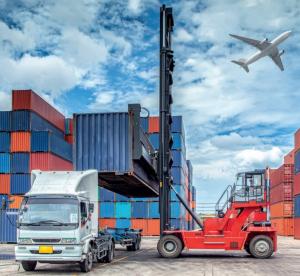The United Nations Code for Trade and Transport Locations, UN/LOCODE in short, a UNECE flagship product, is a geographic coding scheme that uniquely and unambiguously identifies locations worldwide for transport and economic activities. In its role as a fundamental cornerstone of the global trade and transport infrastructure, UN/LOCODE has undertaken a significant expansion of its applications.
Beyond its traditional focus, UN/LOCODE has been implemented into critical domains such as maritime security, environmental conservation, and the promotion of sustainable fisheries. This strategic diversification underscores UN/LOCODE's commitment to addressing multifaceted challenges and fostering holistic standardization and interoperability in today's interconnected world.
The UN/LOCODE Advisory Group convened in Hamburg, Germany, on April 16-17 for its first face-to-face annual gathering since the COVID-19 pandemic.
The 2024 gathering marked a new chapter for the Group, with Ms. Maria Teresa Chavarri (USA) assuming the role of Chair and Mr. Tiago Spengler (Brazil) stepping in as Vice-Chair for the 2024-2025 term, and with a new organigram including the Maintenance Team to validate the Data Maintenance Requests and the Strategy Team to address the policy and strategy issues.
In-depth discussions on the key agenda items focused on improving data quality, cybersecurity measures, and the re-engineering of the UN/LOCODE application. Significant progress was made in addressing the legacy assignment of UN/LOCODEs to sub-locations that does not align with the location definition specified in the latest UNECE Recommendation No.16.
The Advisory Group highlighted cutting-edge developments, including Geofencing initiatives, the mandatory implementation of the Maritime Single Window, and the initiative to associate the UN/LOCODE with the GS1 Global Location Number. Further, the new UN/LOCODE directory publication on the UN/CEFACT JSON-LD Web Vocabulary and relevant tools to improve quality of the UN/LOCODE data were also presented. The Group reached a consensus to explore a Git-based open-source solution for developing a new UN/LOCODE application through a proof-of-concept pilot jointly with the OICT at UN Headquarters.
Participants reiterated a desire for more frequent updates to the UN/LOCODE directory, currently updated biannually despite acknowledging the secretariat’s resource limitations. To improve the current situation, new fundraising initiatives are also being explored to ensure the sustainable development of the UN/LOCODE. This demand reflects the growing importance of real-time data exchange in today's rapidly evolving global trade landscape.
The UNECE secretariat will cooperate with key partners, such as FAO, IMO and UPU, on implementing and promoting standards developed and maintained by the United Nations Centre for Trade Facilitation and Electronic Business (UN/CEFACT), including UN/LOCODE and the United Nations Fisheries Language for Universal eXchange (UN/FLUX). These efforts will focus on advancing the utilization of standards for greater interoperability and harmonization of electronic business practices and information exchange and increasing the accuracy in processing trade exchanges.
For more information, please visit: 2024 Meeting - UN/LOCODE Advisory Group | UNECE.


